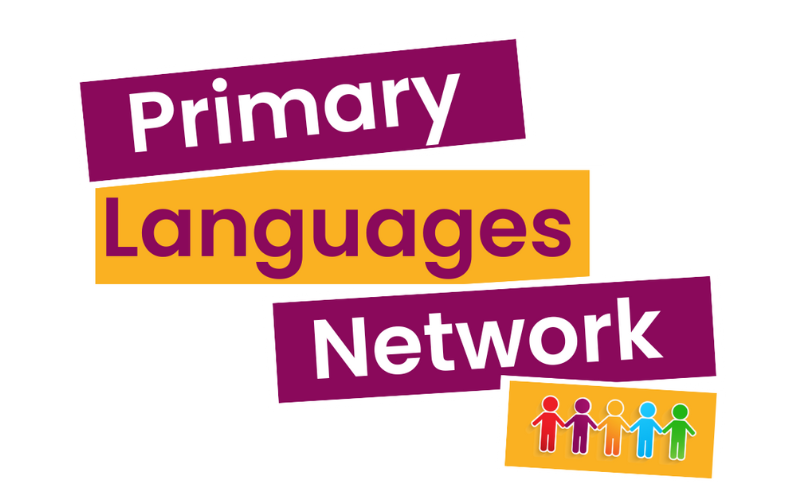Do your young learners know that they are developing "super powers"- the powers of understanding in and across foreign languages?
Developing transferable language learning skills is a key part of language learning that we constantly promote.Let's share how we useinference, prior knowledge and links across languages to understand an unfamiliar text in a familiar target language and use these skills to take the next step and transfer these "powers" to international understanding of less familiar or completely unfamiliar languages too. Let's start with using these "powers of understanding" with a text in a new but semi-familiar language.I think this could really help children and adults to see how ww can transfer from KS2 into KS3 language learning.The activities below are for UKS2 but they would be really useful in a transition project between Ks2 and KS3 or as an informal discussion and assessment activity process on entry in to Y7 in language learning- looking at how the children on entry have or are developing transferable language learning skills.
Your chosen text needs to be current, relevant and of interest to the children .I have created two similar texts - one in French and one in Spanish (I used Wikipedia .fr and Wikipedia.es to do this). I decided that an engaing and the current focus would be facts about the Olympic Games. My texts contain important and key pieces of information about the Olympics and there is considerable use of cognates and semi-cognates. I have laid out the text as gapped themed sentences so that they can be annotated and symobols and notes can be added.The texts are alomost but not quite mirror images of each other.Some facts are different....all will be revealed.
Here are the texts - one in French and one in Spanish .I presented them today on one A4 piece of paper, one text after another.I put the familiar target language text first, in this instance French.
Les Jeux olympiques
Les Jeux olympiques sont un événement international majeur et des milliers d’athlètes participent.
Les Jeux olympiques se tiennent tous les quatre ans.
Il y a les Jeux olympiques d'été ,les Jeux olympiques d'hiver et les Jeux paralympiques.
Chaque nation est représentée.
Les trois meilleurs athlètes ou équipes de chaque compétition reçoivent respectivement une médaille d’or (1re place), d’argent (2e place) et de bronze (3e place).
La célébration des Jeux inclut de nombreux rituels comme le drapeau olympique et la flamme olympique
Los Juegos Olímpicos
Los Juegos Olímpicos son el mayor evento deportivo internacional multidisciplinario en el que participan atletas de diversas partes del mundo
Hay los Juegos Olímpicos de Verano y los Juegos Olímpicos de Invierno y los juegos paralímpicos
Hay aproximadamente 400 eventos. Los ganadores del primer, segundo y tercer lugar en cada evento reciben medallas olímpicas: oro, plata y bronce
Los anillos olímpicos son el principal símbolo de los Juegos Olímpicos modernos
The super power activity steps are as follows.....
- Ask the children to read the familar text (e.g the French text)- looking at each sentence and finding words they know.At the end of the sentence ask them to draw a symbol to represent the theme or message of the sentenceor sentnces (e.g. picture of lots of athletes - could be the first sentence sketch )
- Ask the children to compare symbols with a second child.Do they roughly agree?
- Now ask the children to read the second unfamilar target language text (e.g the Spanish text). Can they draw symbols for each message here too?
- Can they share these symbols with a partner? Do they roughly agree?Are any groups of sentences more challenging than others?
- Ask the children to draw a line along the left hand margin to link French and spanish groups of sentences that they feel contain similar messages.
- Ask the children to underline in these similar sentences in the two texts, words that could mean the same but in different languages
- Ask the children to share these with a partner.
- Can they now identify cognates or semi cognates in a French group of sentences and also in a Spanish group of sentences? What do they notice about spelling bdetween French,Spanish and also English?
- How do they now feel about reading unfamiloar texts in different languages? What super powers have they already got?
- Take the task further and perhaps ask the children to locate a verb in the first sentence in the French and Spanish texts that means to take part.Can they give you a higher order English verb for "to take part" suggested by the verb in French and Spanish (particpent/participan)
- Discuss with the children how the French has helped them with understanding the Spanish and perhaps also helped them to think of English words too.
- Ask the children to find sentences in both texts that are not in the other target language text. What do they think the key message of these sentences are? Which of their "super powers" are they now using to read these parts of the texts?
- Ask the children to help you list the "international understanding powers they now realise that possess which have helped them during these activities..
- Discuss with ther children how learning one new language can be a way of opening a window on a world and being able to understand other languages too!
- Celebrate this understanding with some Art work.Ask the children to take two similar sentences from the different texts and to annotate the groups of sentences with "hieroglyphic" style sketches of the key words in the text.




